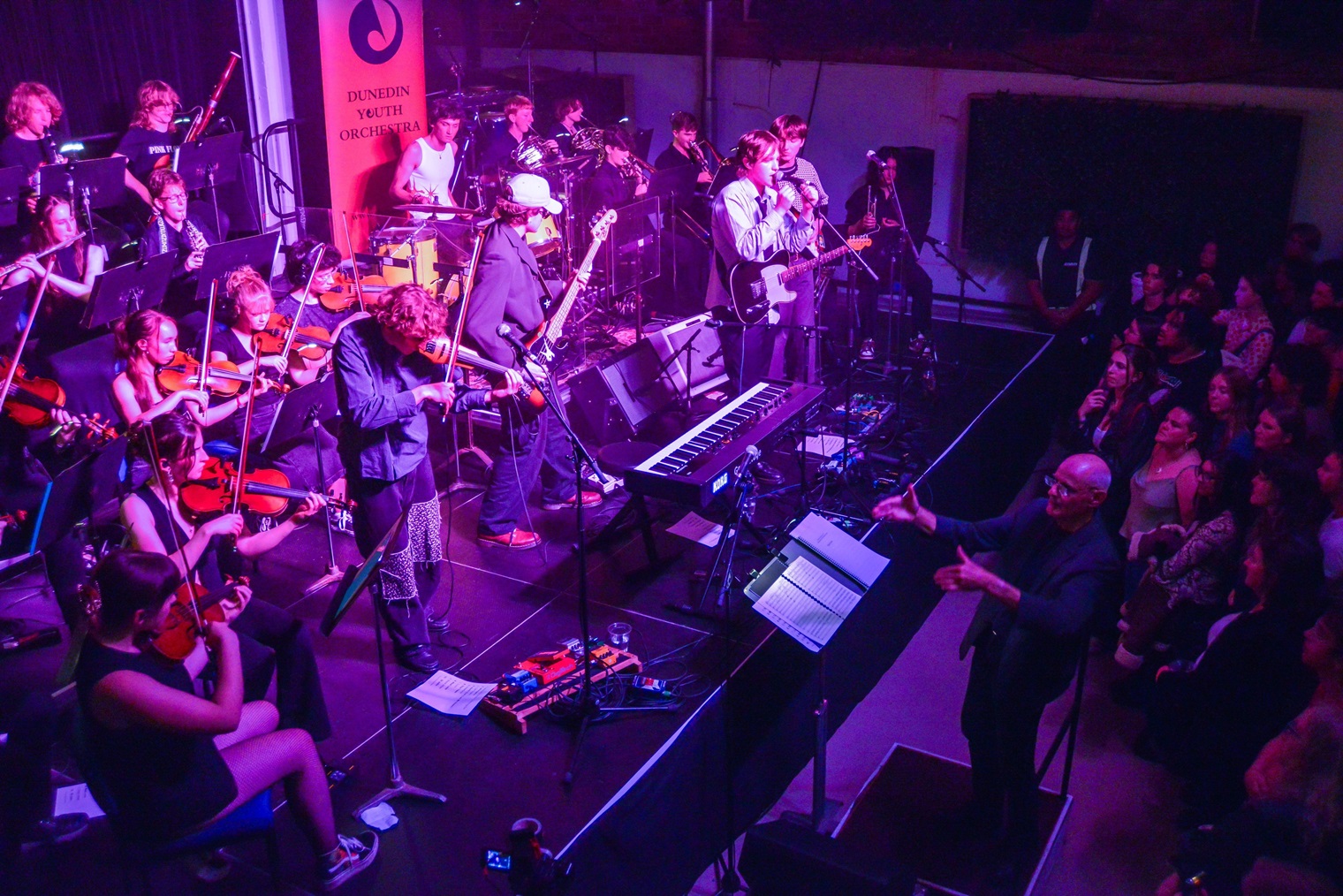

At the University of Otago, music is just as much about sound as it is about connection. It binds students at festivals, unites concert-goers in their shared love for an artist, and allows individuals to express themselves.
Music follows students everywhere. If you were to walk from one end of campus to the other and listen to what is playing through each pair of headphones or set of AirPods, you would hear everything from Six60 to Taylor Swift to Vivaldi.
Music brings students together, whether at festivals like Baseline last Saturday, where 5000 people sang and danced, or in the Octagon every Saturday night, where DJs mix old classics with recent hits, creating a blend of voices and bass outside each club.
Even in lectures, music has made an appearance — one of my lecturers played bursts of Lin-Manuel Miranda’s Hamilton during class breaks, while another opened the class with a song relevant to the day’s content. It broke up the time nicely and lightened the mood.
Social media has changed the way music is popularised. Platforms like TikTok, Instagram and YouTube allow artists to go viral overnight, reaching audiences worldwide. They also allow certain artists to gain momentum and popularity exponentially if their songs become the soundtrack of a trend.
Spotify, my music-streaming app, has over 620 million monthly users. It offers an annual recap of music listening habits.
It is presented as visually appealing and shareable content, including your most listened to song of 2024, top five most streamed artists, and minutes spent listening to each genre.
Dunedin has a rich musical history. Bands like The Chills, The Verlaines, Straightjacket Fits, and Look Blue Go Purple helped define the "Dunedin Sound" in the 1980s — independent and alternative music that gained international recognition. This legacy empowers musicians today to follow in those well-trodden footsteps while carving out new identities.
The Saturday Morning Music Classes also foster engagement and passion within Dunedin’s young people: established in 1968, offering tuition in a wide range of orchestral instruments and voice and guitar. I was part of the recorded ensemble for much of my childhood.
Last Friday, local band IVY performed alongside the Dunedin Youth Orchestra in their performance Beautiful is the Listening Ear, in a cross-genre fusion, showcasing the depth of young talent in Ōtepoti. While regrettably I couldn’t attend, I have heard nothing but praise for this collaboration. I couldn’t attend as I was at a music and fashion showcase at Knox Church, featuring the hand-made crafts of Margaret Garland and Julie-Ann Fleming set to the jazzy original compositions of Philip Fleming.
The Hyde Street party this Saturday is worth noting. It is another opportunity for local bands to practise their songs in front of a live audience, standing on the lawns of the Hyde St flats performing for the party-goers.
While student bands and festivals are part of Otago’s music culture, classical and choral music are close to my heart as some of the most enriching musical experiences I have had. Just this past week, the Knox Church Choir performed excerpts of Mendelssohn’s Elijah as part of an evening service, conducted by Karen Knudson and joined by soloists Claire Barton, Cathy Highton-Sim, Jesse Hanan, accompanied by pianist Sandra Crawshaw and organist Carolyn Schmidt.
Many students at Otago likely participated in a choir at some point in their schooling, perhaps in class practising for an assembly (in year two, my class did Six Months in a Leaky Boat by Split Enz.).
For some students, their singing experience in high school would have culminated in a performance at the Big Sing, the national choral festival. The Big Sing was a highlight of the school year for me, and I have met people at university who remember it equally fondly. We bonded over the songs we sang and our high school choir experiences.
For those who still have a love for singing and may yearn for somewhere to express this passion, choir opportunities exist beyond high school. As mentioned, church choirs offer an opportunity to sing and meet new people.
There are waiata and kapa haka opportunities and Otago also has Cantores Choir, as part of Clubs & Socs, under the patronage of world-class opera singer Jonathan Lemalu. This is open for Otago students to join. I will be looking out for an opportunity to hear them perform, as many will agree, live music performances are particularly special.
This summary omits much: mentions of the many orchestras and jazz bands, the contributions of the Radio One student radio station supplying students with fresh music, the singers in the upcoming annual Capping Show, the political power of student music, the fantastic music department on campus, and all the other creative spirits whose contributions I have yet to come across.
Whether you have your moment of music appreciation on Hyde St this Saturday, at a concert on Sunday afternoon, or through your AirPods as you walk your dog, music is a force that connects and enriches life, especially student life.
It evolves generationally and is shaped by trends and technologies, but music’s ability to unite people remains.
There will be music as long as students are at the University of Otago.
Kind regards,
Grace.
• Dunedin resident Grace Togneri is a fourth-year law student.










